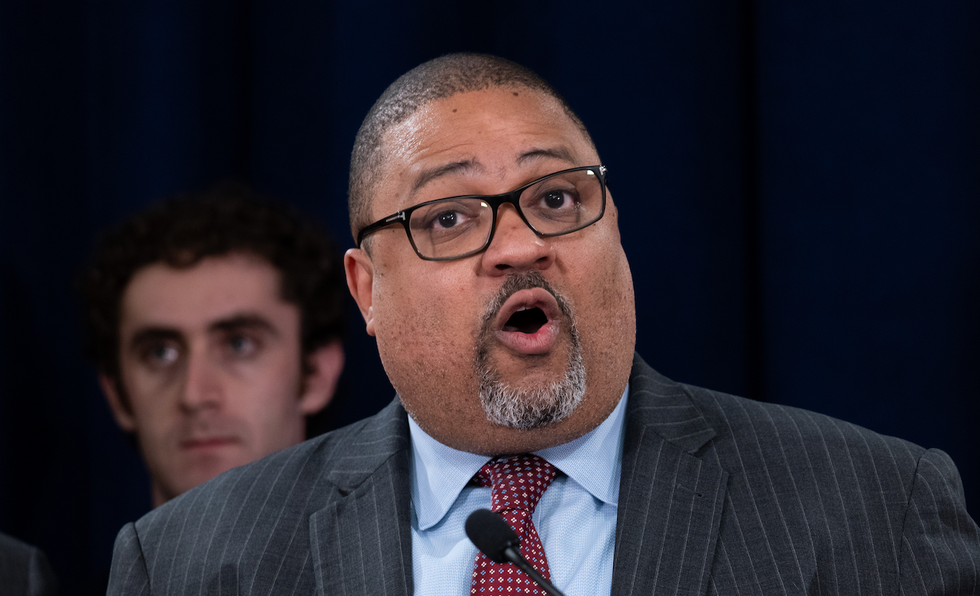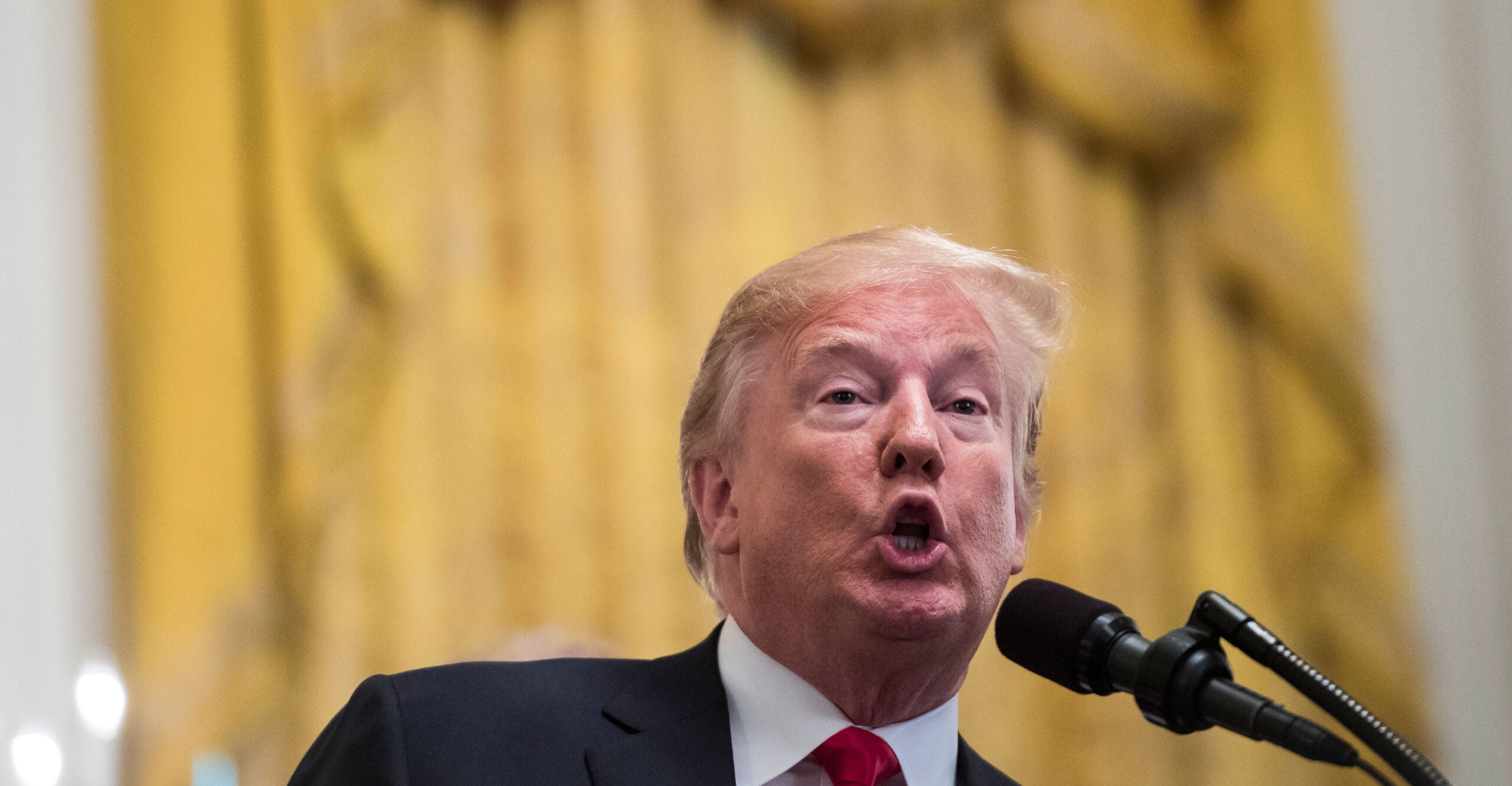Feds set record for throwing money away!
Biden-Harris paid at least $746 billion to 'wrong recipients, for the wrong reasons, or in the wrong amounts'



In 2021, near the peak of the coronavirus pandemic, investigators tailed a Jeep Cherokee stolen from an airport Avis to a New York City apartment they called a “fraud factory” – no furniture, just an air mattress, a computer, stacks of loan and tax forms, and a shredder.
Two men who had first met in prison – Adedayo Ilori, 43, and Chris Recamier, 59 – were using stolen identities and fake paperwork to falsely claim they employed 200 people, bilking the federal government’s pandemic-relief programs of more than $1 million, according to federal prosecutors. They used the stolen money to splurge on big-ticket purchases, such as cryptocurrency, leasing luxury apartments and a Mercedes, the evidence showed.
Recamier got nine years in prison. In October 2023, after a judge sentenced Ilori to 25 years – at the time, the harshest punishment for a pandemic fraud case – U.S. Attorney Damian Williams thanked the usual partners in law enforcement, including the FBI and the NYPD. But Williams also expressed gratitude to an agency, the Pandemic Response Accountability Committee, which is so little-known that the press release announcing Ilori’s conviction used a footnote to explain what it was: a small office in the Justice Department established by Congress in 2020 to track fraud related to the $5 trillion the government lent or spent to help Americans survive COVID-19. Mostly under the radar, the Accountability Committee built data-analysis capabilities that, as of January 2023, had identified an estimated $5.4 billion in pandemic fraud, according to congressional testimony last month by DOJ’s Inspector General and committee head, Michael E. Horowitz.
Created by the Trump-era CARES Act with a fiscal 2024 budget of $40 million, the scam-hunting agency has made notable strides in combatting a problem that has befuddled other watchdogs – the massive amount of “improper” payments dispensed by the federal government each year.
In its first three years, the Biden administration set a record for the amount of money sent to the wrong recipients, for the wrong reasons, or in the wrong amounts during a single presidential term – at least $764 billion. The federal government estimates that nearly 6% of its total spending has gone to improper payments during Biden’s presidency, according to OpenTheBooks.com.
The amount tops the $673 billion in improper payments made during the four years of the Trump administration, which were about 5% of government outlays, the watchdog group said. It also dwarfs the federal spending deemed improper during the Obama administration. Improper payments were $453 billion and $512 billion during Obama’s two terms in office, respectively, according to the Government Accountability Office.
Since 2003, when the government first started tracking improper payments, it is estimated that they have added up to more than $2.7 trillion, according to paymentaccuracy.gov, the public website where government agencies report their numbers.
Given that trajectory and the Pandemic Response Accountability Committee’s success addressing the problem – it has identified 135 times more improper payments than it has spent – Horowitz and the inspectors general of other Cabinet-level departments are beseeching Congress to “apply our fraud-prevention and detection tools to all federal spending.” Instead, he said in his Sept. 10 testimony, the fraud-hunting agency faces closure next year if Congress doesn’t renew its funding soon.
While the fate of the agency remains uncertain, questions about extending its expiring five-year mandate are shining a light on the federal government’s longtime problems in battling waste, fraud, and error. As large as the numbers are, experts agree they vastly understate the problem.
For instance, any waste or fraud associated with the Department of Housing and Urban Development’s two biggest rental assistance programs, which together constitute 68% of HUD’s annual budget, are not included in the total figure. The agency says it can’t keep tabs on improper payments due to spotty reporting by states, which collaborate with the federal agency on distributing aid. Since the programs have a combined 2025 fiscal budget of $49.5 billion, undetected illegality is likely to inflict significant taxpayer losses.
As the numbers show, the problem is less connected to any specific administration or governing philosophy than a deeper problem in government accountability, experts say.
“It’s hard to ask recipients of big programs such as Social Security to look the other way when there are proposals to tighten up their benefits [for fiscal reasons] at the same time that so much money is getting thrown out the door,” said Douglas Holtz-Eakin, former director of the Congressional Budget Office and current president of the American Action Forum, a conservative think tank. “We obviously have to spend more wisely.”
Criminal activity targeting the taxpayer is vast and mostly goes unpunished. Uncle Sam loses between $233 billion and $521 billion annually due to fraud, according to the Government Accountability Office. But not all improper payments indicate fraud. The federal government commits a lot of old-fashioned errors, too. For example, the failure to update Medicare records to reflect recipient deaths means that providers have continued getting paid for as long as two years after their patients died. Close to $300 million was spent on behalf of dead people in fiscal year 2023, according to OpenTheBooks.
Efforts to limit the amount of squandered taxpayer money languish near the bottom of agency to-do lists and are typically underfunded. The Government Accountability Office has made recommendations for improvements and shared them with Cabinet departments and Congress. Many of them have collected dust for years. Inspectors general of Cabinet agencies, tasked with keeping an eye on department spending, complain they don’t have the resources, in some cases, to even follow up on credible fraud claims.
Experts and watchdogs agree that the federal government needs a more data-driven approach to rein in fraud. As President Biden’s fiscal 2025 budget message states: “There is compelling evidence that investments in administrative resources can significantly decrease the rate of improper payments and recoup many times their initial investment for certain programs.”
Linda Miller, co-founder and chair of the Program Integrity Alliance, a good-government group, told Congress that in addition to limiting improper payments and fraud, “increased data use can also significantly reduce administrative burdens on honest Americans who deserve efficient interactions with the government.”
The pandemic exposed just how unprepared the government was for criminality on such a vast scale, Miller said. Detailing the fraud in the government’s biggest pandemic relief effort, the Paycheck Protection Program, has proven difficult. The PPP doled out $953 billion in loans to small businesses so they could stay afloat during COVID lockdowns and ended up forgiving $793 billion. Improper payments by the program added up to $23 billion just for fiscal 2023, according to figures compiled by the GAO.
The GAO and inspectors general of cabinet-level agencies have said they support continued funding of the Pandemic Response Accountability Committee and its data lab, the Pandemic Analytics Center of Excellence. But, observers say, hurdles often stand in the way of common-sense government reforms.
The biggest change would be collaboration, including sharing data, between agencies. “Much of what our data-analytics center does is facilitating data-matching among agencies to find people who may have defrauded multiple pandemic programs,” Horowitz testified. “This ability is important because fraudsters do not typically target just one government program. They focus their efforts on any and all government programs from which they can easily steal money.”
The GAO has long been in favor of cross-agency partnerships and has said so in its recommendations to Congress. Rather than chase the money once it’s gone, the GAO has said it’s easier to work to prevent fraud by sharing information, communicating across government offices and what it calls leveraging existing infrastructure, which would include data analysis.
Right now, individual inspector general offices have no authority to investigate outside their own agencies. The government-wide pandemic anti-fraud programs helped break down those silos.
For instance, Horowitz said his DOJ anti-fraud division worked with the Social Security Administration to ensure that applicants for aid had properly matching social security numbers – and were alive. The watchdog determined there were 69,000 examples of questionable identification that had been used to obtain $5.4 billion in pandemic relief.
In the biggest probe so far, Horowitz said, data analysts worked with the Social Security Administration to identify 14 people who worked together to swindle the PPP of $53 million. “They allegedly used a group of affiliated companies to apply for at least 29 fraudulent PPP loan applications to financial institutions that included inflated payroll expenses, doctored bank statements and faked tax forms,” Horowitz said. “The defendants then created a false paper trail to simulate payroll expenses by funneling the funds through a series of bank accounts.”
In other cases, pandemic anti-fraud units have worked with a variety of government agencies, including the FBI, individual executive-branch inspectors general, the Federal Deposit Insurance Corporation (FDIC), the Special Inspector General for Pandemic Recovery, the Small Business Administration, the Consumer Financial Protection Bureau, the Treasury Inspector General for Tax Administration, the Internal Revenue Service and, of course, the Justice Department’s Southern District of New York, where PRAC helped law enforcement take down the two “fraud factory” criminals who were eventually sentenced to a combined 34 years in prison.
“Unless Congress takes action, one of the most significant tools that Congress helped create to improve program integrity and prevent fraud will be lost,” Horowitz said. “It would be a wasted opportunity to allow this valuable fraud-fighting tool to expire.”
SUPPORT TRUTHFUL JOURNALISM. MAKE A DONATION TO THE NONPROFIT WND NEWS CENTER. THANK YOU!
What's Your Reaction?

































































































